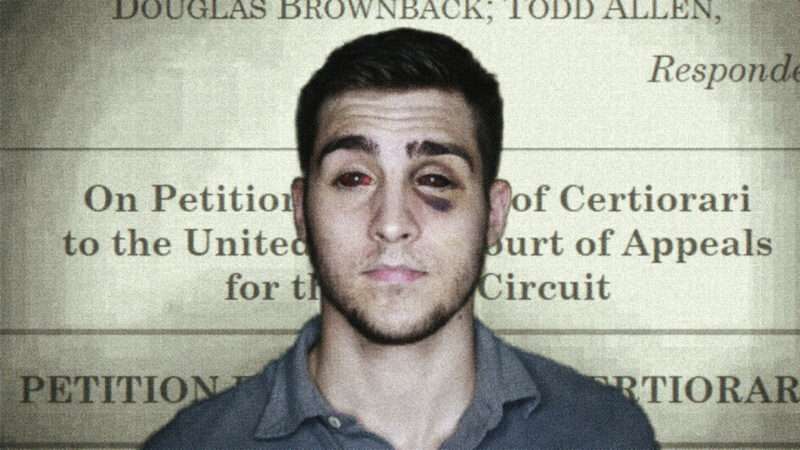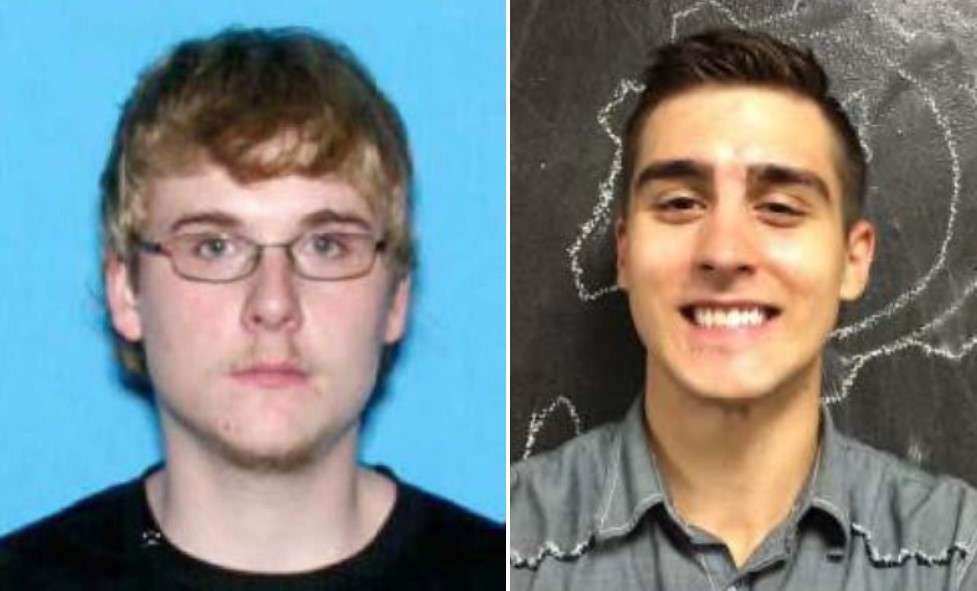
It has been almost a decade since James King, then a college student in Grand Rapids, Michigan, was choked and beaten by an FBI agent and a local police detective after they mistook him for a suspect with whom he shared no resemblance. And yet, after all this time, it is unclear if King will be permitted to merely ask a jury if he deserves some compensation for the government's misconduct, the likes of which left his face temporarily disfigured.
That legal odyssey is finally nearing a conclusion as King asks the U.S. Supreme Court to consider his case for a second time. If the justices choose to hear his plea, they'll have to decide if FBI agent Douglas Brownback and Grand Rapids detective Todd Allen are immune from facing a civil suit for their actions, simply because of their government status.

In 2014, King was walking from one job to the next when Brownback and Allen, who were not in uniform, accosted him without identifying themselves as law enforcement. "Are you mugging me?" King asked. He then ran. The two officers, who were part of a police task force, responded by tackling him to the ground, beating his face to a pulp, and choking him unconscious. But they were looking for someone named Aaron Davison, who had been accused of stealing alcohol from his former employer's apartment, and who, perhaps more importantly, looked nothing like King.
Even still, police arrested King and handcuffed him to a hospital bed as he received treatment, despite the fact that the only malfeasance here was committed against, not by, King.
What followed in the proceeding years is a case study in the level of protection given to rogue government actors and the byzantine obstacle course that victims of government misconduct have to navigate should they want the privilege of achieving any sort of recourse. Indeed, King's case has ricocheted up and down the ladder of the U.S. legal system, from the bottom to the top and back again.
The officers first received qualified immunity, the legal doctrine that blocks victims of government misbehavior from seeking recourse in civil court if the precise way the state violated their rights has not yet been "clearly established" in a prior court precedent. In practice, that means clearly unconstitutional conduct—like, say, beating an innocent person—may not be a sturdy enough basis for a lawsuit unless the court has evaluated a case with near-identical circumstances. It is, for example, why two men in Fresno, California, were not allowed to sue the officers who allegedly stole over $225,000 during the execution of a search warrant. We should all know stealing is wrong, the thinking goes, but without a court precedent scrutinizing a similar situation and expressly spelling that out, can we really expect the government to know for sure?
The U.S. Court of Appeals for the 6th Circuit overturned the decision granting Brownback and Allen qualified immunity, paving the way for King to sue. But the government then petitioned the Supreme Court to instead grant them a different immunity. Under the Federal Tort Claims Act (FTCA), the government said, victims of federal government misconduct, like King, are prohibited from pursuing claims over constitutional infringements if they cannot pursue the feds via a state tort claim. "The government has essentially said 'if you lose one claim, you're out of luck, and you lose all of your claims,'" Anya Bidwell, an attorney at the Institute for Justice, which is representing King, said in a statement. "That's not how any other area of the law works and that's not how the FTCA should work, either. It turns a statute that was supposed to expand government accountability into one that swallows it up."
In 2021, the Supreme Court volleyed the case back to the 6th Circuit, which granted the additional immunity. So it is now back to the high court to decide if government employees have even more license to violate the laws they are supposed to uphold.
Victims of federal misconduct have long faced an onerous road to recourse. As a teenage girl, Hamdi Mohamud found herself in a Minnesota jail, where she would remain for two years, after St. Paul police officer Heather Weyker filed bogus charges against her in connection with a sex trafficking ring Weyker fabricated. As a part of her "investigation," Weyker lied under oath, conjured fake evidence, and tampered with police reports. For that, she was denied qualified immunity. But because Weyker was working on a federal task force, Mohamud was prevented from suing, as federal officers are often afforded what amounts to absolute immunity. The Supreme Court further cemented that last year.
"Qualified immunity makes it very, very difficult to sue government officials," Patrick Jaicomo, who represents King at the Institute for Justice, told me in 2021. "This makes it impossible."
If the Supreme Court demurs at King's latest petition, then that process will somehow get even harder.
The post Law Enforcement Beat This Innocent Man to a Pulp. Will the Supreme Court Allow Him To Seek Recourse? appeared first on Reason.com.







